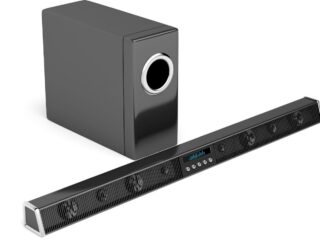
Introduction to Data Centers
Digital information must be managed and stored in data centers. Almost every action you take online—sending an email, streaming a video, or conducting a financial transaction—relies on data centers. These facilities house extensive networks of computer servers and storage systems, ensuring that data is available and accessible 24/7. A comprehensive data center definition and overview are highly beneficial for more detailed insight.
The significance of data centers cannot be overstated. They are the backbone of our digital age, supporting everything from basic personal activities to complex business operations. Data centers’ dependability and efficiency are crucial as our dependence on digital infrastructure increases.
What is a Data Center?
A data center is a location specifically designed to contain computer systems and related parts like storage and telecommunications. These centers are engineered for reliable operation, including redundant power supplies, data communication connections, environmental controls (e.g., air conditioning, fire suppression), and security devices. For instance, when you use cloud storage services, your data is stored and managed in data centers.
Data centers are meticulously designed to ensure high performance and reliability. They have advanced infrastructure to handle immense data loads and ensure seamless connectivity. Each component within a data center, from servers to storage devices, is optimized to work in unison, providing quick access and retrieval of data.
The Role of Data Centers in Businesses
Data centers are crucial in the business world for efficient IT resource management, quick data retrieval, and scaling without significant downtime. They are essential for businesses offering digital services like video streaming platforms and e-commerce websites. They support critical applications and processes, maintaining operational continuity. Companies from finance to healthcare rely on data centers for secure storage, efficient processing, and quick retrieval.
Types of Data Centers
- Enterprise Data Centers are controlled and run by businesses for internal purposes. They are suited for large corporations with significant IT demands. Enterprise data centers offer complete control over the infrastructure, allowing customization to meet specific organizational needs.
- Colocation Data Centers are facilities where multiple companies rent server and equipment space. This option is cost-effective for businesses needing only part of the data center. Colocation provides a shared environment, reducing overhead costs while offering robust connectivity and security.
- Cloud Data Centers: These virtual data centers provide scalable data storage and services via the Internet. They are managed by third-party service providers like Amazon Web Services (AWS) and Microsoft Azure. Cloud data centers allow businesses to pay for only the resources they use, offering flexibility and scalability.
Each type of data center offers unique benefits, and the choice depends on the business’s specific needs, budget, and scalability requirements. Whether opting for enterprise, colocation, or cloud data centers, companies must evaluate factors like security, cost, and future growth potential.
Data Center Security
Given the amount of critical data stored, data center security is paramount. This includes physical security measures (like surveillance cameras and biometric access controls) and cybersecurity measures (like firewalls and intrusion detection systems). Additionally, data centers implement disaster recovery plans to ensure data safety in case of natural disasters or other emergencies.
Physical Security
Physical security in a data center is crucial for safeguarding hardware and sensitive data. Surveillance cameras, biometric systems, fences, and gates are examples of security measures that guarantee that only authorized individuals may enter the building. Regular security audits and access logs monitor and control access points, with security personnel on-site to respond to any breaches or suspicious activity. The physical security protocol aims to protect data and its infrastructure.
Cybersecurity Measures
Cybersecurity involves installing firewalls, encryption protocols, and intrusion detection systems to protect data from cyber-attacks. Regular security audits and updates enhance data centers’ resilience against evolving threats. Advanced threat detection systems, continuous monitoring, and automated alerts minimize the risk of data breaches and downtime. Comprehensive disaster recovery plans ensure data integrity and availability in adverse situations.
Energy Efficiency in Data Centers
Modern data centers focus heavily on energy efficiency to reduce operating costs and environmental impact. Techniques like power usage effectiveness (PUE) measurements and eco-friendly cooling solutions are commonly adopted. Innovations in this area have led to significant advances in building and managing data centers.
Energy-efficient data centers utilize advanced cooling technologies like liquid and free-air to minimize energy consumption. Solar and wind power are combined more often to decrease the carbon footprint, using renewable energy sources. These green initiatives lower operating costs and contribute to sustainable business practices, aligning with global efforts to combat climate change.
Data Center Trends and the Future
The development of big data analytics, cloud computing, and the Internet of Things (IoT) is driving up demand for data centers. Future trends include adopting AI-driven monitoring systems for proactive problem-solving and the increased use of renewable energy sources to power data center operations. For the latest insights on how data centers are evolving, check out recent updates on industry trends from Data Center Dynamics.

As technology advances, data centers are expected to become more intelligent and autonomous. AI and machine learning will significantly benefit predictive maintenance, resource allocation optimization, and security protocol enhancement. Furthermore, the adoption of edge computing is set to expand, allowing data processing to occur closer to the data source, reducing latency, and improving performance for time-sensitive applications.
Conclusion
Data centers are crucial for the global digital infrastructure, supporting various technologies and ensuring the smooth flow of information. As businesses and consumers generate and use vast data, their role and sophistication will grow. By improving operational efficiency and adopting innovative technologies, data centers will continue to support the digital ecosystem effectively. As we progress in the digital age, data centers will remain at the forefront, enabling technological advancements and supporting the modern world’s information flow.










